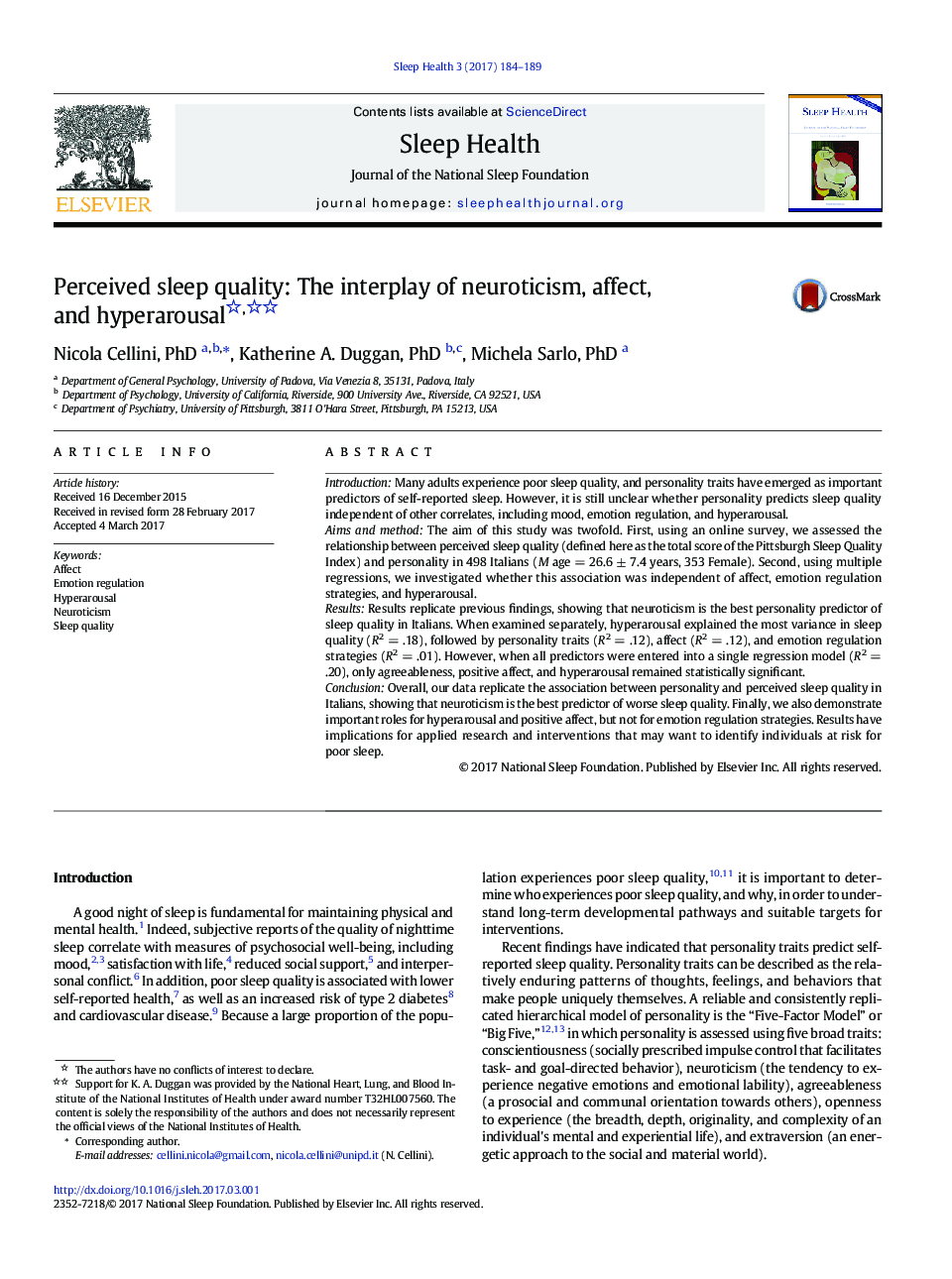| Article ID | Journal | Published Year | Pages | File Type |
|---|---|---|---|---|
| 5039590 | Sleep Health | 2017 | 6 Pages |
IntroductionMany adults experience poor sleep quality, and personality traits have emerged as important predictors of self-reported sleep. However, it is still unclear whether personality predicts sleep quality independent of other correlates, including mood, emotion regulation, and hyperarousal.Aims and methodThe aim of this study was twofold. First, using an online survey, we assessed the relationship between perceived sleep quality (defined here as the total score of the Pittsburgh Sleep Quality Index) and personality in 498 Italians (M age = 26.6 ± 7.4 years, 353 Female). Second, using multiple regressions, we investigated whether this association was independent of affect, emotion regulation strategies, and hyperarousal.ResultsResults replicate previous findings, showing that neuroticism is the best personality predictor of sleep quality in Italians. When examined separately, hyperarousal explained the most variance in sleep quality (R2 = .18), followed by personality traits (R2 = .12), affect (R2 = .12), and emotion regulation strategies (R2 = .01). However, when all predictors were entered into a single regression model (R2 = .20), only agreeableness, positive affect, and hyperarousal remained statistically significant.ConclusionOverall, our data replicate the association between personality and perceived sleep quality in Italians, showing that neuroticism is the best predictor of worse sleep quality. Finally, we also demonstrate important roles for hyperarousal and positive affect, but not for emotion regulation strategies. Results have implications for applied research and interventions that may want to identify individuals at risk for poor sleep.
